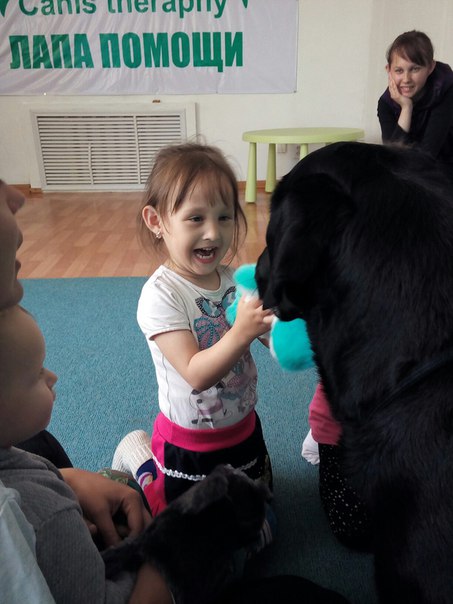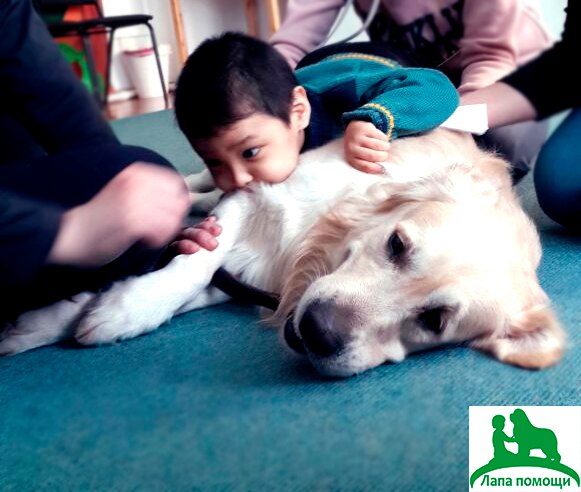ASTANA – Dogs have long been known to have a positive effect on a person’s mental and physical health. Karaganda-based Lapa Pomoshchi (Paw of Help) canine therapy centre uses that understanding to provide rehabilitation procedures for families raising a child with limited abilities.
The centre, featuring new and unusual procedures, was opened in 2008 by volunteers from the Komanda (Team) public association, said founder Yekaterina Klassen in a recent interview with The Astana Times.
“Nine years ago we initiated our courses on canine therapy for children with cerebral palsy, autism, intellectual disability and other developmental features with the help of dogs from the Kara-Ayular Newfoundland kennel. We were confident that these dogs had no aggression; the dogs were perfectly trained, they underwent regular examinations with a veterinarian and liked to work with people,” said Klassen.
In the beginning, the team did not have sufficient experience. Trainers did not know much about the principles of holding rehabilitation classes or the peculiarities of the psyche of children with special needs. By studying the process, however, the enthusiastic and committed young people have grown into professionals who have mastered the principles of canine therapy and continue to help children.
“In 2015, we were admitted to the St. Petersburg Community of Canine Therapy and we officially registered the centre. At present, the centre has ten dogs: two Newfoundlands, three Labradors, two retrievers, one husky and one malamute. In general, dogs of all breeds and sizes are suitable for canine therapy. The main thing is the absence of aggression, learning ability, obedience and the desire to work. Dogs working in canine therapy are eager to communicate and work with children. One of the main criteria for choosing a dog is its attitude toward children. Our therapists are happy to get acquainted with the centre newcomers, help them, willingly participate in games, wait and support kids who do not know how or just learn to walk,” she said.
All rehabilitation courses are held individually. Centre specialists develop a specific training programme for each child, taking into account his or her capabilities and characteristics. The child feeds the dog from a spoon and together they perform various tasks, such as jumping over barriers, crawling through the tunnel or playing a hairdresser or doctor, noted Klassen.
“We welcome children with the most different diagnoses: autism, cerebral palsy, Down’s syndrome, developmental delays and so on. Changes occur even during the courses – communicative and motor skills and the psycho-emotional state of the child improves as muscle tone increases. All children who complete the course of canine therapy show positive dynamics. For those who want to attend courses or help the centre, please contact us +77014583626,” she told the paper.
The centre has a few restrictions. Children under two years of age and older than 14, as well as those with allergies, seizures, acute infectious and dermatological diseases, are not recommended for the courses.
The centre works without any state or sponsor support. The main expenses include the monthly premises rent and costs for the dogs’ transportation and household chemicals.
“To cover these expenses, we hold monthly events – open door days, fairs and photo sessions. Now, some of the classes are paid by the centre, but most of the classes are free. Centre specialists, volunteers and volunteers with dogs work for free. Unfortunately, we spend a lot of time organising events and looking for funds to pay the monthly rent. If we had any kind of support, we could focus more time on courses and increase the number of children who undergo rehabilitation every month in the centre. Now, we need to continue training specialists in St. Petersburg, attest dogs, buy equipment for classes and complete repairs in the room, but for all this there is no money,” said Klassen.

